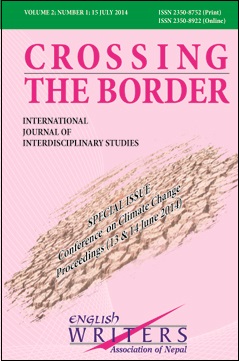Impact of Informal Cross Border Trade on Poverty Alleviation in Nigeria: Kotangowa Market [Lagos] in Perspective
DOI:
https://doi.org/10.3126/ctbijis.v2i1.10809Keywords:
Cross-border trade, informality, poverty alleviation, regulation, smuggling, stateAbstract
27th August 2014: Final corrections were made to this paper as requested by the author - Editor.
This work investigates the impact of Informal Cross Border Trade (ICBT) on poverty alleviation in Nigeria using Kotangowa market in Lagos as a case study. While the policy dialogue in Nigeria is driven by the state-centric perception of ICBT as an economic malice, this study analyzes the impact of ICBT including smuggling on the socio-economic development of participants. Also, it examines the role of the state and non-state actors in negotiating the implementation of regulations at the margins and center of the state. The research problem is examined through an assessment of the financial history of informal cross-border traders and customers in the market. The factors considered include income levels, assets acquisition, and expenditure overtime. The approach is qualitative based on descriptive method of data analysis. While ICBT is tainted by state policies as hampering economic development, findings show that it actually alleviates poverty. This paper argues that informality of this nature exemplifies the moderation of arbitrary state policies by non-state actors in Sub-Saharan Africa.
DOI: http://dx.doi.org/10.3126/ctbijis.v2i1.10809
Crossing the Border: International Journal of Interdisciplinary Studies Vol.2(1) 2014: 13-22

